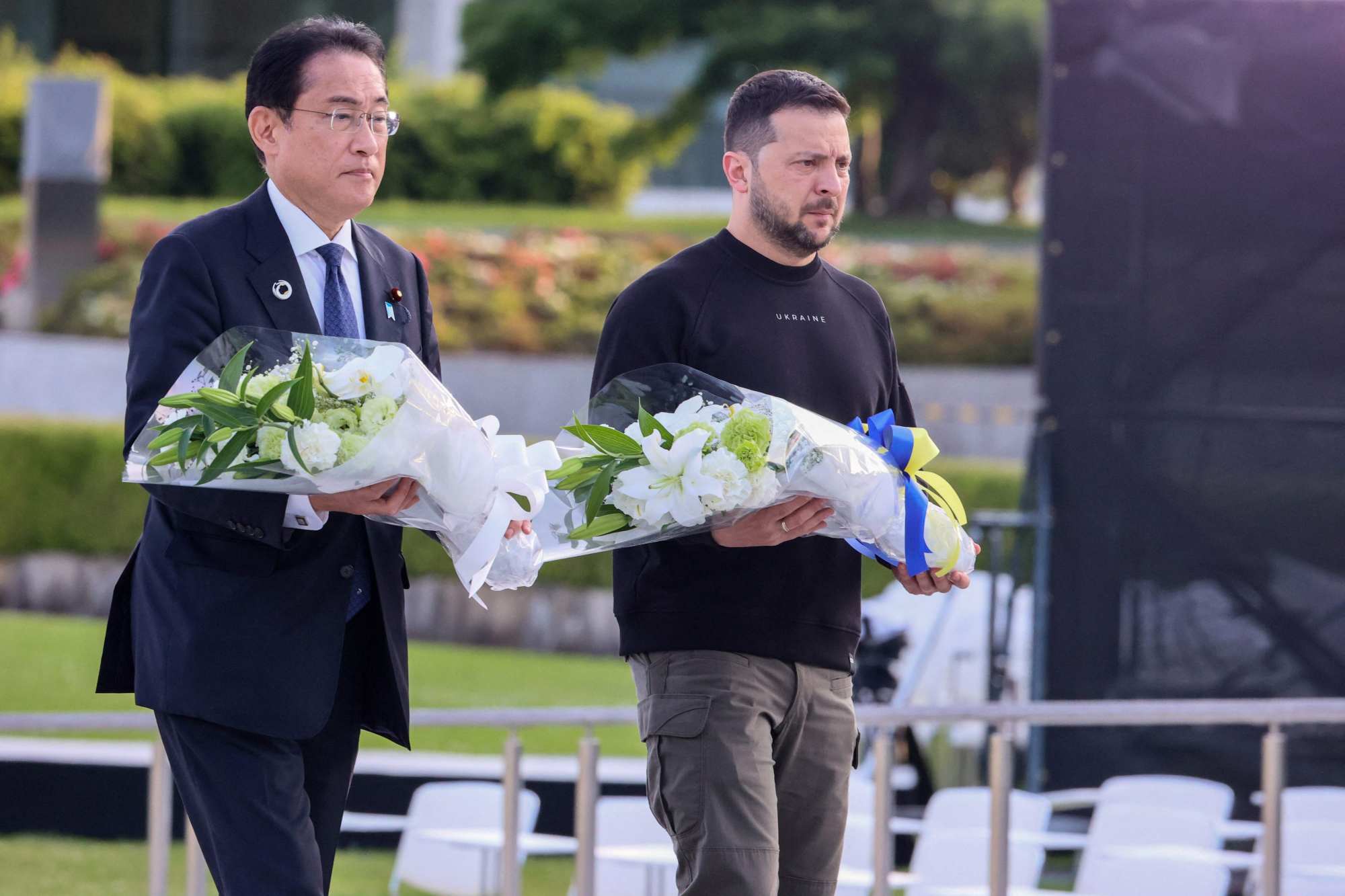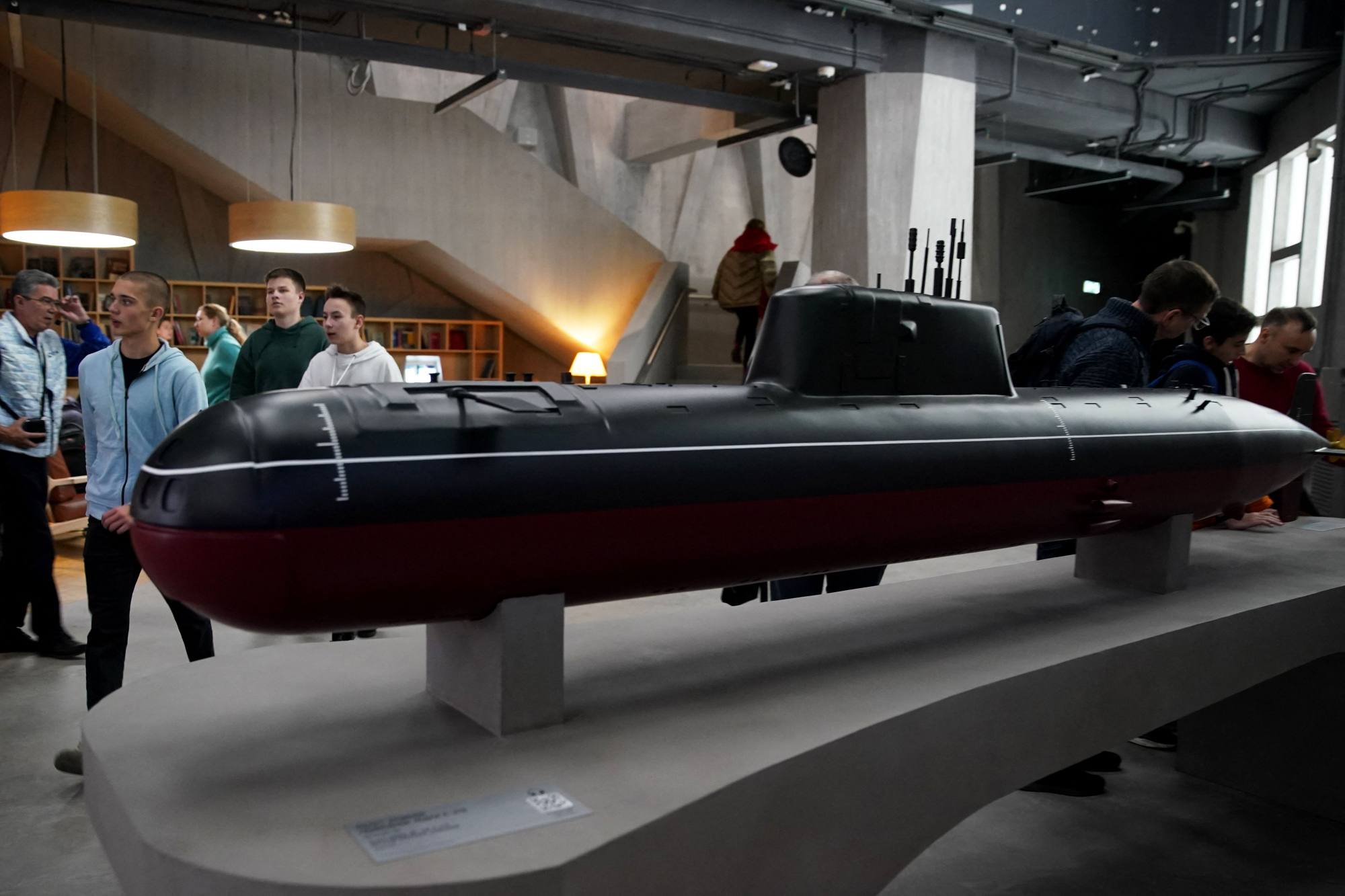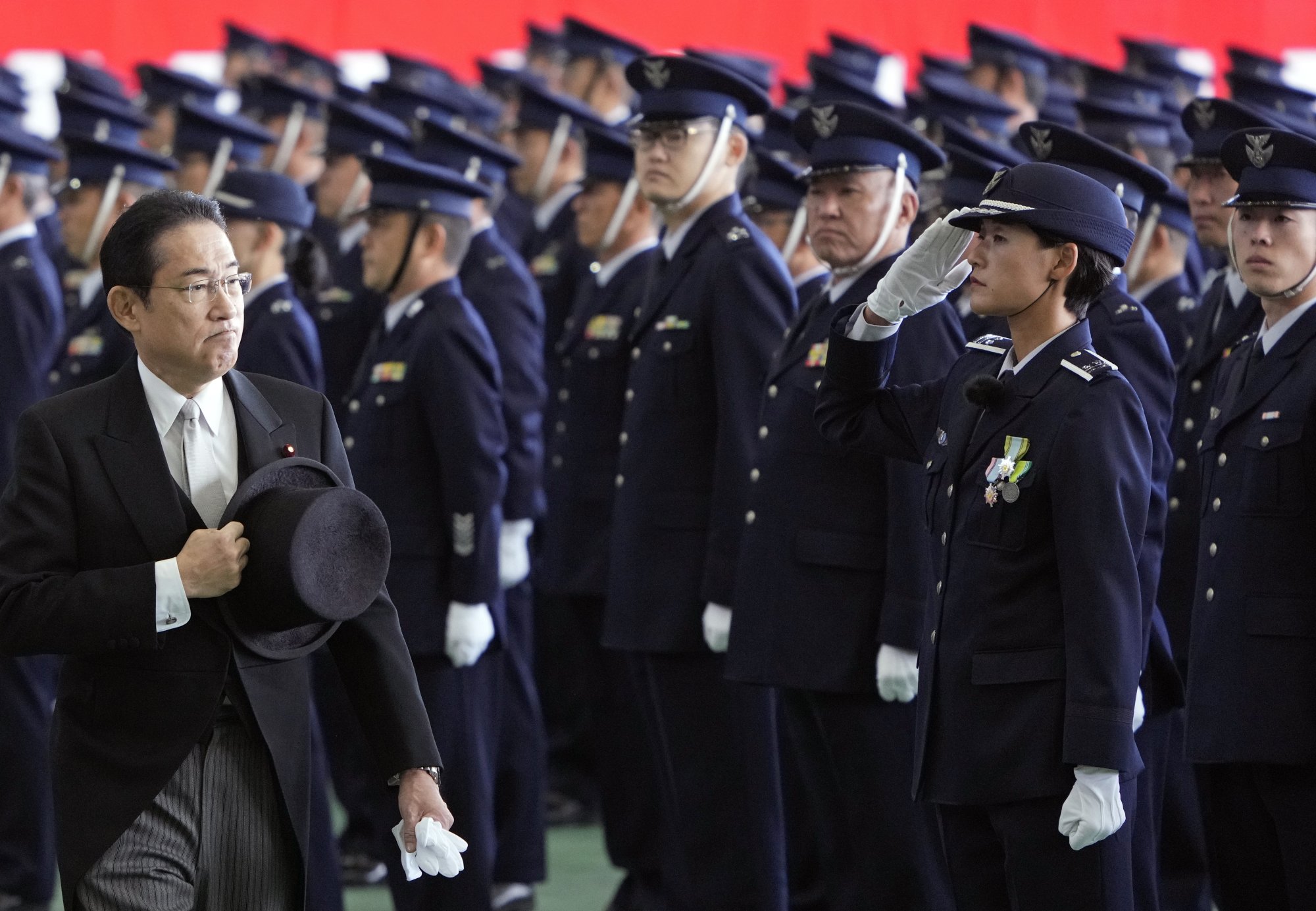Hirokazu Matsuno, the Japanese chief cabinet secretary, said on Friday that Tokyo had only just learned of the agreement being scrapped.
Matsuno said it was “regrettable that such a unilateral announcement was made [by Russia] without prior notice to Japan”, Jiji Press reported. He added that Japan had requested further information on Moscow’s decision through diplomatic channels.

James Brown, an international relations professor who specialises in Japan-Russia affairs at the Tokyo campus of Temple University, said there appeared to be two primary motivations for Russia’s announcement.
“Russia is clearly looking for ways to retaliate against Japan and they have already put an end to talks on a peace treaty to formally end World War II, and put an end to visa-free visits by the inhabitants of islands that were formerly part of Japan until they were occupied at the end of the war,” he said.
“There have been a number of other microaggressions, and this is all designed to give Japan pause before it provides more assistance to Ukraine.
“It also fits the narrative that Russia is withdrawing from every agreement on nuclear issues, such as the CTBT [the Conventional Nuclear Test Ban Treaty], with the intent of communicating that they are thinking of using nuclear weapons in the hope that will deter the US, Japan and others from supporting Ukraine,” Brown said.
“This could all just be sabre-rattling, of course, but we thought the same when Russian forces were massing on Ukraine’s borders in 2022.”

The bilateral agreement dated back to 1993 and saw Japan pledging an initial US$100 million in aid – later rising to US$208 million – to the former Soviet Union to help decommission reactors from retired nuclear submarines.
For Russia, which had inherited numerous ageing nuclear submarines but not invested in ways to render their reactors safe at the end of the vessels’ operational lives, the problem was largely financial, but there were technical issues as well.
In August 1985, 10 engineers were killed and radioactivity was released into the atmosphere when control rods were incorrectly removed from the reactor aboard a Victor-class submarine at the Chazma Bay naval dockyard, close to Vladivostok in the Russian Far East. It is believed that many Russian submarines that are no longer seaworthy are docked in ports waiting to be decommissioned.
Japan stepped in after the Russian government admitted in a report issued in March 1993 that eight reactors from Northern Fleet vessels had been dumped in between 20 metres and 40 metres of water in the Abrosimov Gulf, off Murmansk, between 1965 and 1988. At least three of the reactors were reported to be damaged and leaking.
Japan protests Russia-China military drills, Moscow scraps visa deal
Japan protests Russia-China military drills, Moscow scraps visa deal
In October 1993, Russia also released 900 tons of low-level nuclear waste into the Sea of Japan, triggering alarm among Japanese fishermen and the public.
Japan was also concerned at reports of Russian sailors arrested attempting to sell highly enriched uranium from fuel rods, while Russian officials the following year detained two North Korean agents attempting to buy information on Russian submarines.
Initiated under former prime minister Junichiro Koizumi, the project was titled “Star of Hope” and saw Japanese experts assist in the safe dismantling of the reactors of six Russian submarines. Subsequent assistance included the construction with Japanese funds of onshore facilities to safely store reactor compartments removed from dismantled submarines.

Ryo Hinata-Yamaguchi, an assistant professor of international relations at the University of Tokyo, said the Russian decision came as little surprise, but the ongoing decline in bilateral ties should arguably be of greater concern given that decommissioning facilities were now in place in Russian ports.
“We are seeing the slow and steady decline in all areas of communications and links between Japan and Russia, meaning there is very little left to rebuild on,” he said.
“I would argue that the agreement in itself is less important, but Japan and Russia are moving further and further apart and Russia is now acting in a way that is more similar to China or North Korea, throwing its weight around, and that is cause for concern in Japan.”
Hinata-Yamaguchi also pointed out that Japanese Prime Minister Fumio Kishida on Saturday expressed concern over joint military air exercises by Russian and Chinese aircraft in areas close to Japan, with Kishida saying in a speech at the Japan Air Self-Defence Force base at Iruma, north of Tokyo, that “attempts to change the status quo unilaterally around our country are intensifying”.
Japan was assessing the significance of the flights and attempting to determine whether they were merely a show of force in the region or, more worryingly, manoeuvres designed to enhance combined operations between the two nations’ militaries and were a preparation for offensive actions, Hinata-Yamaguchi said.

